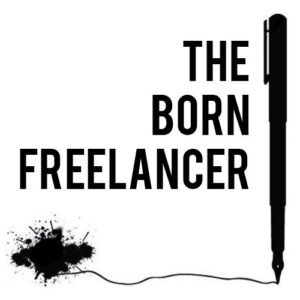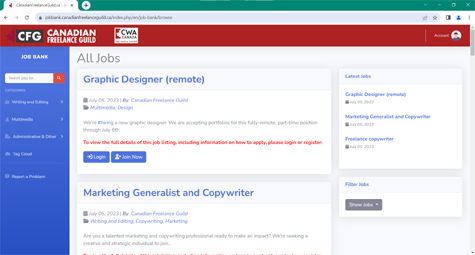This series of posts by the Born Freelancer shares personal experiences and thoughts on issues relevant to freelancers. Have something to add to the conversation? We’d love to hear from you in the comments.

Working freelancers learn to create under the most challenging circumstances.
Loud noise. Flashing lights. Distractions of every kind.
But each of us probably has a favourite kind of space in which to write, the idealized type of location in which to pour out our hearts and minds onto our keyboards with optimal success.
For me, the craft of writing has three distinct phases: Prep, Writing and Editing. Each requires its own separate and ideal circumstances for my maximum prolificness.
Phase 1—Prep
This is the acquisition of ideas (and, if required, the further researching of them). I'm often asked, "Where do your ideas come from?" The answer is banal but compelling: They come from all around me. I genuinely believe the best ideas are gifts from the universe. They have somehow been bequeathed to me for reasons beyond my comprehension. I remain nevertheless grateful for their arrival and respectful of their lineage.
I carry a number of notebooks wherever I go. They're crammed full of ideas and scraps of ideas. They are the raw material I will later ponder and harvest. I used to carry a small digital recorder but found I ended up with a lot of unlistened-to audio requiring a patience I do not possess to process.
I know writers who find their most useful inspiration in the most overwhelming circumstances such as noisy bars, night clubs and social events. When facing a looming deadline I prefer solitary walks. They allow my brain to process whatever it has noticed in the busy world subconsciously and bring it to my attention consciously in the pursuit of a solution to whatever challenge I am facing creatively.
Phase 2—Finding the Words
This is the brutal act of sitting down and subjecting often abstract ideas to the ultimate test of making them real on a screen or page. I say "brutal" because it requires discipline and sheer force of will. Some sentences will flow freely, almost of their own accord. Others require enormous perseverance and internal strength, the proverbial rolling of a dead elephant up a steep hill. Some ideas will stand up to much critical scrutiny, others may fall injured to the side, never to be resurrected.
This inner struggle can be mitigated by conducive surroundings.
Music or no music? Some writers require complete silence, finding aural distractions to be an impediment to their creativity. Me, I crave music at this phase. Preferably upbeat jazz or light classics, whose rhythm and beat I can use as a tidal wave under my word processing mother-board, keeping me afloat during lulls and raising me up at times of particular inspiration. Music with lyrics, however, can be too distracting, as I am often drawn into the songwriter's matrix and away from my own thoughts.
Where do I write? I have written while sitting on the end of a bed in small studio apartments, on kitchen table tops, in cubicles at the library, in dingy disused offices and on park benches during beautifully sunny summer days, to name just a few locations.
For a good long while I was certain my favourite space in which to write was a dedicated home office of my own.
- Book shelves up to the ceiling
- A good music system
- Good lighting
- A comfortable office chair
- A huge desk with lots of drawers
- And the necessary isolation required to devote oneself to one's work without hinderance or interruption
It was magical.
Such a dedicated work-only space also provides a considerable practical advantage at tax time. The square footage of any dedicated business-use space in a home can be used in calculations to help defray taxes. Consult the CRA website or local tax office for further details.
I no longer have that dedicated home office. I continue to work without it.
Phase 3—Editing
Some great artist once said the secret of sculpture was to chip away everything that wasn't your subject. Good editing is like that too. You have to take your beloved words, and ruthlessly cut away all but the absolutely necessary. It can be traumatic for some writers. Others are more cold-blooded about it. I'm somewhere in between.
I find time is the key. If I can take a night to "sleep on it" then early the next morning I can edit much more aggressively and productively. If I can't take a night off then a quick walk around the block is a helpful way to disengage momentarily and allow my subconscious to determine what needs to be done.
Curiously, when editing, my preference is for somewhere relatively quiet. While writing, music helps the words crest and flow. While editing, I am frequently speaking the sentences aloud over and over and any external sounds interfere with my attempts to find their proper rhythm.
The Takeaway
The ideal working space is as variable a concept as there are writers. My heaven is your hell and vice versa. Nor is it absolutely necessary to always work in your ideal space. After all, a little irritation allows the oyster to create pearls. But as time goes on, you may find yourself drawn to one kind of creating space or another, without necessarily knowing why.
I'm not sure we have much control over such predilections. I never thought about a dedicated home office until I had one and then I revelled in it. Why did it seem to matter so much to me at the time?
Only recently have I realized it had been imprinted upon me as a child. As a kid my family and I would visit friends. The father of one family we visited was a freelance writer. I recall being deeply impressed that he had a dedicated home office. None of the other parents had one. Down a long corridor from the family living room, out of earshot of all domestic noise, his home office seemed to me then a kind of magical space. It had walls of books, a big multi-drawered desk, subdued overhead lighting, a quiet burbling music system…long buried in my childhood subconscious its echo would emerge later during my most productive adult years as a tangible symbol of my freelancing success and of having finally become—in my mind at least—a "real" writer.
It served its purpose.
So having once thrived in—and then carried on without—what I thought was my all time idealized work place, I am now at last in a position to conclusively share with you the ultimate location of my favourite, most ideal and productive working space:
It's wherever I am while writing my latest project, buoyantly lost amidst the act of creation.
And, no surprise, it always was.
Do you have a favourite kind of working space or surroundings that enhance your creativity? Please share them with us using the comments feature below.
If you are a Canadian Freelance Guild Member, you are welcome to propose an idea for a professional development webinar for your colleagues. Login to the CFG homepage and go the Webinars page. At the top of the page you'll find a "Suggest A Webinar" button. Click on it to fill out a form with your idea(s). Members who end up presenting a webinar can receive an honorarium or an extension to their membership for a full year.




